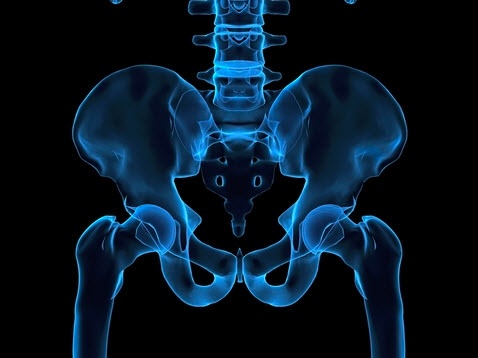Approximately 300,000 Americans break a hip every year. Many of them are seniors. Unfortunately, hip fractures can be much more detrimental for seniors than for the rest of the population. Here’s a closer look at the issue, along with caregiver tips aimed at keeping seniors safe.

What is a Hip Fracture?
The hip is a ball-and-socket joint which allows the upper leg to rotate and bend. Hip fractures are breaks that occur in the upper quarter of the thigh (femur) bone. An injury to the socket is not considered a hip fracture.
Most hip fractures are caused by falls and direct blows to the hip. The extent of the injury depends on the forces involved. According to the American Academy of Orthopaedic Surgeons (AAOS),
“Some medical conditions such as osteoporosis, cancer, or stress injuries can weaken the bone and make the hip more susceptible to breaking. In severe cases, it is possible for the hip to break with the patient merely standing on the leg and twisting.”
Hip Fractures and Seniors
The risk of hip fractures rises with age. Says the Mayo Clinic,
“Older people are at a higher risk of hip fracture because bones tend to weaken with age (osteoporosis). Multiple medications, poor vision and balance problems also make older people more likely to trip and fall — one of the most common causes of hip fracture.”
And while hip fractures are serious injuries under any circumstances due to potentially life-threatening complications, they are particularly dangerous for seniors. Consider a Kaiser Permanente Center for Health Research study funded by the National Institutes of Health indicating that women between the ages of 65 and 69 who break a hip are five times more likely to die during the subsequent year than those who women of the same age who don't break a hip.
Said lead author Erin S. LeBlanc,
“This study is a wake-up call that the first year after a hip fracture is a critical time for all elderly women….We need to do more to prevent hip fractures from occurring, and we need to study how best to care for women after fracture to prevent these deaths.”
This was the first study to directly link hip fractures with a higher risk of dying -- due, say scientists, to complications from hospitalization, surgery, and immobility. Additionally, previous research has attributed higher risk of earlier death from hip fractures to underlying medical issues, such as diabetes, heart disease, and stroke.
But hip fractures don’t just impact mortality. According to the Mayo Clinic, approximately half of people with hip fractures don’t regain their ability to live independently.
Hip Fracture Prevention
There are some simple things seniors can do to reduce their risk of hip fractures, including increasing their vitamin D and calcium intake; getting regular eye checkups; watching your medications; doing balancing and weight-bearing exercises; avoiding cigarette smoking. Healthcare providers can offer valuable partnership in helping caregivers identify a hip fracture prevention plan.

Additionally, keeping living spaces clean and clutter free can reduce fall-related injuries. Kaiser Permanente recommends home assessments as a helpful way to “fall-proof” the homes of seniors. Walking sticks and walkers are also useful assistive devices for unsteady or fall-prone seniors.
Managing Hip Fractures
Despite best preventative efforts, hip fractures may still occur. Signs and symptoms may include the inability to move; severe pain in the hip or groin; the inability to bear weight on the injured side; stiffness, swelling, and/or bruising on and around the hip; a shorter leg on the injured size; and the turning outward of the leg on the injured side.
Hip fractures typically require surgical repair or replacement, followed by physical therapy. However, says the AAOS, “In very rare cases, the patient may be so ill that surgery would not be recommended. In these cases, the patient’s overall comfort and level of pain must be weighed against the risks of anesthesia and surgery.”
In addition, your doctor may recommend medications known as bisphosphonates which can lower the risk of a second hip injury.
While hip fractures represent a serious threat to senior health, caregivers can play a vital in both prevention and recovery. mmLearn.org offers a large library of free videos for caregivers of older adults, covering topics pertaining to senior care. Whether you are a healthcare professional or a family caregiver, if you are caring for an older adult we know that you will find mmLearn.org an essential learning and guidance tool for all of your caregiver training needs. Access our database of videos featuring free online training for caregivers today.
If you're looking for a comprehensive resource for family caregivers, check out our online Family Caregiver Guide.

